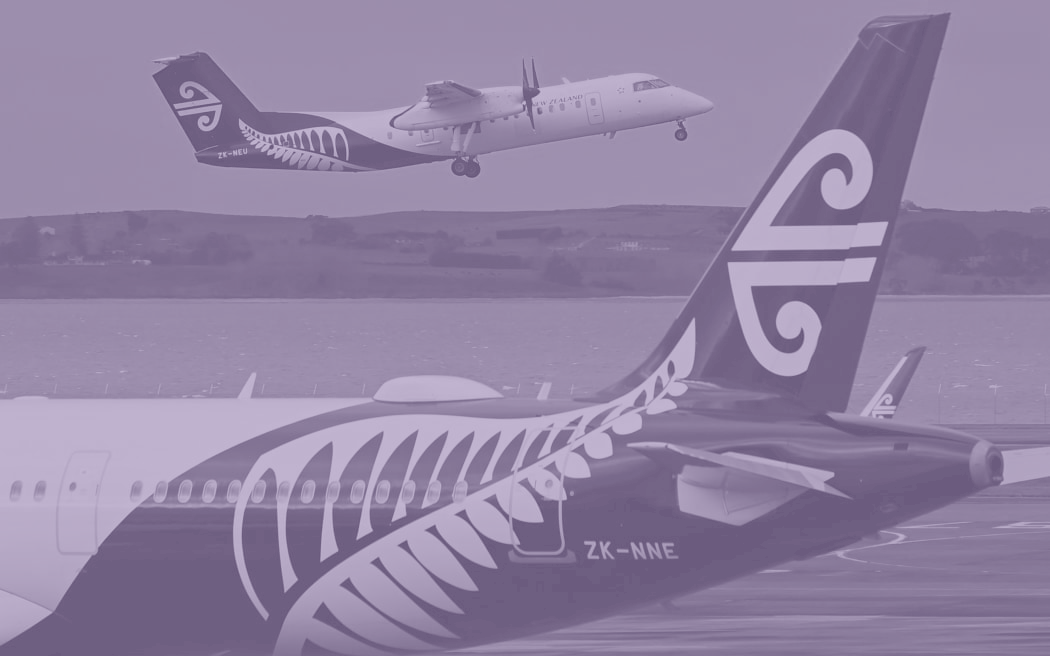Privatisation of the domestic airline scene has undoubtedly been financially lucrative for New Zealand’s two biggest players. In late August 2023, Air New Zealand announced a net profit of $213M (RNZ, 2023). Although finances are yet to be released for Jetstar’s domestic New Zealand operations, indications suggest that 2023 has also been a lucrative year for the Qantas subsidiary. Shareholders have mostly been elated by the stellar performances of both carriers so far this year, with Air New Zealand shareholders receiving plentiful dividends as an added bonus (RNZ, 2023).
However, the travelling public is less pleased. Both carriers have been accused of maintaining a pseudo-duopoly domestically, where price-gouging and passengers being nickel and dimed for onboard services, has become the new standard. Whilst it may be easy to blame the airlines, it would be unfair to place the blame squarely on them. The government has just as much to answer for.
Neoliberal Ideals:
The current state of domestic aviation can be drawn back to the wave of neoliberalism that swept successive Australian and New Zealand Governments between 1983 to 1990 (ICAO, 2003). Neoliberal policy was intended to be a counter to the stagflation of the late 1970s. It was intended to bring massive economic growth through loosening governmental regulations of markets. Instead, governments would only be required to regulate from an industry-level, rather than at a company level previously (Hinkes-Jones, 2014). The free market was king, and companies could compete with primarily corporate interests at heart. Everything else would be secondary.
Neoliberalism Meets Aviation:
Whilst New Zealand would be an early adopter of neoliberal ideals, it would not be the first. In 1978, President Carter signed the Airline Deregulation Act into law. Congress wanted to pass the Act to increase competition in what was seen as a stagnant market (Semuels, 2023). Fares would no longer be set by the government and companies could decide where they wanted to fly. The government would only be responsible for monitoring flight safety.
Initially, the Act was successful. By 1980, airfares had dropped to a fraction of what they were in 1977 (Smithsonian, 2021). Additionally, deregulation also resulted in an explosion of new carriers emerging on the market, giving consumers lower airfare prices and increased choices for travel (Smithsonian, 2021). Seeing the successes of deregulation in the US, New Zealand would follow suit in 1983 under a similar system. The move would cause a fair number of new carriers to enter the domestic market, although the effects weren’t as pronounced as those in the US. By 1989, the government would divest itself from Air New Zealand itself, fully privatising the company (ICAO, 2003).
Side-Effects
Though governments were keen to point out the successes on deregulation, these were short-lived. The lower fares that had been promised to the travelling public were oftentimes the result of price wars, between established and newly established carriers, that drove fares down unsustainably. This almost always resulted in newly established carriers being acquired, or being forced into bankruptcy. The remaining legacy carriers would inevitably hike up fares to an even higher price prior, in order to recuperate their losses (Hinkes-Jones, 2014). Aotearoa would see this play out with the inception of Ansett New Zealand in 1987. The carrier was set up as a competitor to Air New Zealand. However, by 2001, it had been forced into liquidation (Sinha, 2001). Other smaller carriers shared a similar fate, leaving Air New Zealand as the sole choice for millions of New Zealanders once again. Air New Zealand itself would be forced to the brink of bankruptcy, having been heavily implicated in acquiring Ansett’s former parent company in Australia at an eye watering loss to the government (Barkham, 2001)
The Scene Today:
Today, the domestic scene is a virtual duopoly. For many New Zealanders, Air New Zealand or Jetstar are the only two options. Though smaller carriers exist, they mainly capture specific travel niches, such as flights to remote, low-yield destinations, which don’t reflect the needs of a majority of New Zealanders. As a result, both Air New Zealand and Jetstar have been able to charge for fairly exorbitant prices on trunk routes. Although New Zealand’s domestic market is undoubtedly profitable, there is doubt that a third player would be able to carve out a meaningful foothold in the New Zealand Market. Whilst the current situation is not preferable, Ansett New Zealand’s demise,combined with Air New Zealand’s track record of historical dominance, suggests that having even just two carriers operating simultaneously is something that suggests at least a minimally healthy level of competition.
New Zealand’s level of domestic aviation competition places the country on par with its company across the ditch. Australia’s primary domestic competitors are Qantas and the newly bankruptcy-emergent, Virgin Australia Group. Qantas has recently come under fire for alleged slot hoarding at airports and has forced the ACCC into monitoring the domestic aviation scene (McGuire, 2023). Whatever the case, the grass does not look green on either side for the travellers in both nations.
Bibliography:
[2] https://www.icao.int/sustainability/documents/transtasmanmarket_en.pdf
https://jacobin.com/2014/09/neoliberalism-at-30000-feet
[4] https://ses.library.usyd.edu.au/bitstream/handle/2123/12190/13.%20Mills.pdf?sequence=1&isAllowed=y
[5] https://time.com/6247052/airlines-deregulation-american-inequality/
[6] https://airandspace.si.edu/stories/editorial/airline-deregulation-when-everything-changed
[7] https://scholarworks.umass.edu/cgi/viewcontent.cgi?article=1612&context=open_access_dissertations
[8] https://www.theguardian.com/world/2001/sep/17/patrickbarkham
[9] https://www.1news.co.nz/2023/07/24/why-are-domestic-flights-so-expensive-in-new-zealand/




